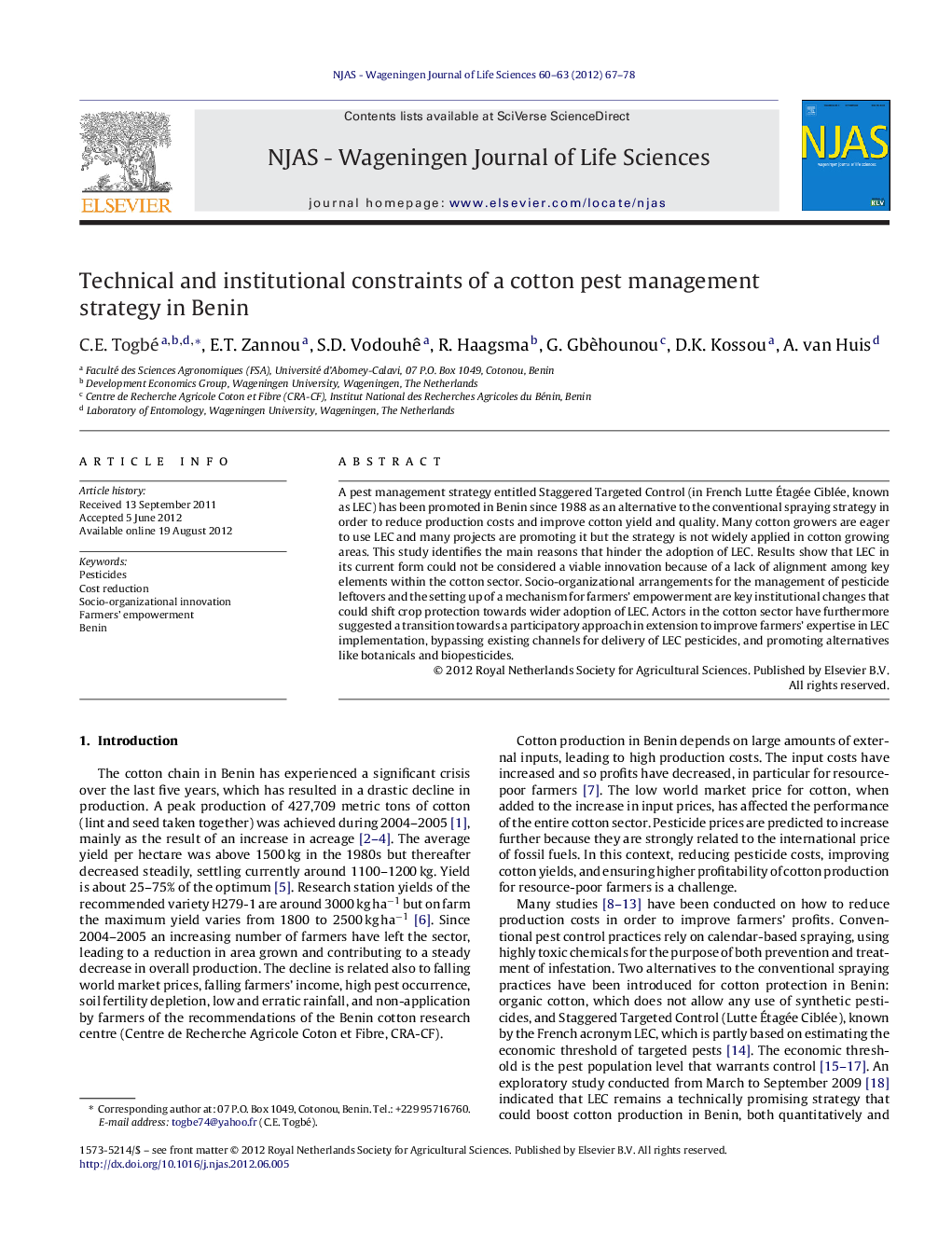| Article ID | Journal | Published Year | Pages | File Type |
|---|---|---|---|---|
| 4501334 | NJAS - Wageningen Journal of Life Sciences | 2012 | 12 Pages |
A pest management strategy entitled Staggered Targeted Control (in French Lutte Étagée Ciblée, known as LEC) has been promoted in Benin since 1988 as an alternative to the conventional spraying strategy in order to reduce production costs and improve cotton yield and quality. Many cotton growers are eager to use LEC and many projects are promoting it but the strategy is not widely applied in cotton growing areas. This study identifies the main reasons that hinder the adoption of LEC. Results show that LEC in its current form could not be considered a viable innovation because of a lack of alignment among key elements within the cotton sector. Socio-organizational arrangements for the management of pesticide leftovers and the setting up of a mechanism for farmers’ empowerment are key institutional changes that could shift crop protection towards wider adoption of LEC. Actors in the cotton sector have furthermore suggested a transition towards a participatory approach in extension to improve farmers’ expertise in LEC implementation, bypassing existing channels for delivery of LEC pesticides, and promoting alternatives like botanicals and biopesticides.
